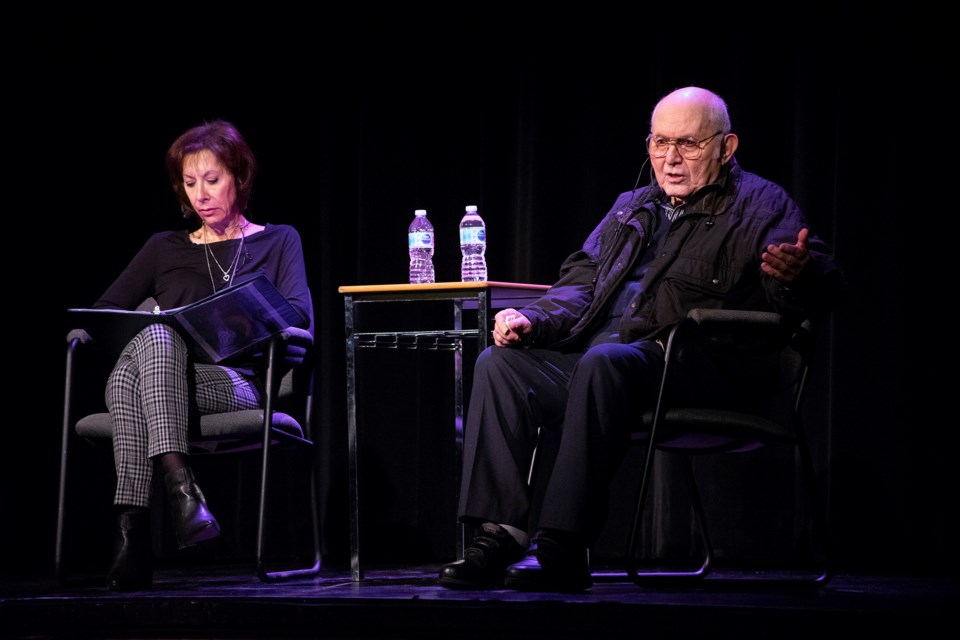When Holocaust survivor Pinchas Gutter turns on the nightly news lately he hears similar hateful rhetoric that led to the death of millions of Jews in Europe in the 1940s, but the 86 year old says he is still hopeful for the future.
Gutter was in Guelph on Wednesday to speak to over 600 John F. Ross students about his first-hand experiences before, during and after the Holocaust.
Although he has been speaking publicly about his experiences since 2002, Gutter said it was his first time addressing a crowd in Guelph.
“For many years I didn’t want to speak about it, I didn’t want to burden my children with it. It was bad enough that I was suffering,“ said Gutter.
Speaking to media immediately after the event, Gutter said he hears some of the same dehumanizing language used today when some people talk about refugees or minority groups as he experienced growing up in pre-war Poland.
“It’s very difficult for me to watch when I look at the television screen and see all of these women with children being chased from here, from there, from everywhere,” he said.
Gutter was seven years when Poland was invaded in 1939.
Leading up to the war, Gutter said he and other Jews faced discrimination by people using dehumanizing language and calling them money-grubbing. But Gutter said most of the Jews in his hometown were simple textile workers.
“There was a lot of poverty, most of them were small tradesmen. My grandfather was a farmer. We were all different — we were all just like everyone else,” he said.
At the time, his family consisted of himself, his mother, father and twin sister. They were forced out of his hometown by the Nazis and moved to Warsaw.
They eventually had to move into the infamous Warsaw Ghetto, which was established by the German authorities in 1940, before the entire family was sent to the sent to the Majdanek extermination camp in 1943.
It was in Majdanek that his parents and sister were killed.
Many of the Grade 10 students in the audience had read Gutter’s memoir, Memories in Focus, which was provided to them free of charge by the Azreili Foundation.
It was a much different experience to hear Gutter speak of his experiences in person, said Madison Matthews, a Grade 10 student at John F. Ross.
“When you’re reading, you’re just reading a book, but when you are hearing it from the actual person you can see the emotional effect it has had on him — when he was speaking about his sister, he was getting emotional,” said Matthews.
Although Gutter said he is hearing much of the same dehumanizing language today as he did during the war years, he believed the world is improving — very slowly.
He cited efforts by countries around the world taking in refugees from Syria or the Rohingya people.
“The fact is, in the 1930s when we were refugees, no one wanted to take us in,” said Gutter.
As the world takes three steps forward it is taking one step back as nationalism rears its ugly head, he said.
“Everywhere you look you have these dictators coming to the fore and starting whipping up the population, which is very easy,” said Gutter. “You don’t tell the truth, you tell lies and you whip up people for all kinds of things.”
“There are a lot of bad things happening, but the world is moving in the right direction very slowly,” said Gutter.
In his closing remarks to the students, Gutter said he would like to pass his torch of goodwill to them, an imaginary torch that has four flames.
“Those flames represent the following — no racial discrimination, no religious discrimination, no homophobia and the biggest flame of all, no hatred,” said Gutter.
He asked the students to hand out the torch to whoever they can to make the world a better place.
